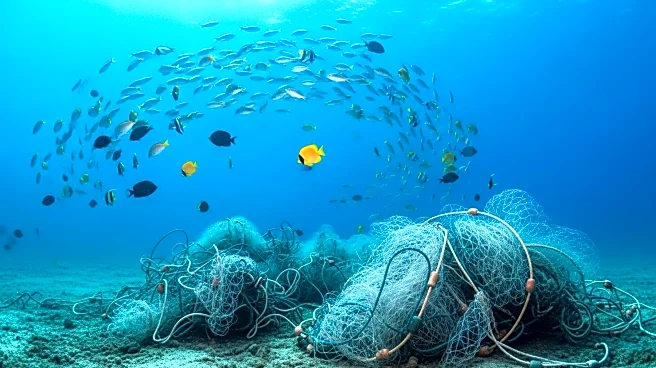What is the story about?
What's Happening?
Nineteen Indonesian nationals have pleaded guilty to illegal fishing activities in Australian waters, as reported by the Darwin Local Court. The incidents involved five separate cases where Indonesian vessels were intercepted by Australian authorities between September 7 and 11, 2025, in the Northern Territory. The Australian Border Force (ABF) seized significant quantities of sea cucumbers, salt used for processing, and fishing equipment. The vessels were subsequently destroyed at sea in accordance with Australian law. The master of one vessel, who had previously been subject to a good behavior bond, was re-sentenced to one month imprisonment for breaching the bond, along with two additional concurrent one-month terms. Other vessel masters received recognisance orders ranging from A$5,000 to A$6,000 for good behavior over two to three years. The remaining fishers received recognisance orders between A$2,000 and A$4,000. All individuals will be deported to Indonesia after serving their sentences.
Why It's Important?
This case highlights the ongoing issue of illegal fishing in Australian waters, which poses significant challenges to maritime security and environmental conservation. The prosecution of these individuals underscores Australia's commitment to enforcing its fisheries management laws and protecting its marine resources. The illegal fishing activities not only threaten the sustainability of marine life but also impact the livelihoods of legal fishers and the broader fishing industry. By taking decisive legal action, Australian authorities aim to deter future violations and maintain the integrity of their maritime boundaries. The deportation of the fishers serves as a warning to others who might consider similar activities, reinforcing the consequences of illegal fishing.
What's Next?
Following the court's decision, the convicted fishers will be deported to Indonesia after serving their respective sentences. Australian authorities are likely to continue monitoring and intercepting illegal fishing activities to prevent further breaches. This may involve increased patrols and surveillance in vulnerable areas, particularly near Rowley Shoals and other regions prone to illegal fishing. The Australian government may also engage in diplomatic discussions with Indonesia to address the root causes of illegal fishing and explore cooperative measures to prevent future incidents. Enhanced collaboration between the two countries could lead to more effective enforcement and conservation efforts.
Beyond the Headlines
The prosecution of these fishers raises broader questions about international maritime law and the responsibilities of countries to manage and protect their marine resources. It also highlights the need for regional cooperation in addressing illegal fishing, which often involves complex cross-border dynamics. The destruction of the vessels at sea, while legally sanctioned, may prompt discussions about the environmental impact of such actions and the potential for alternative penalties. Additionally, the case may influence future policy decisions regarding the management of Australia's maritime boundaries and the protection of its marine biodiversity.















